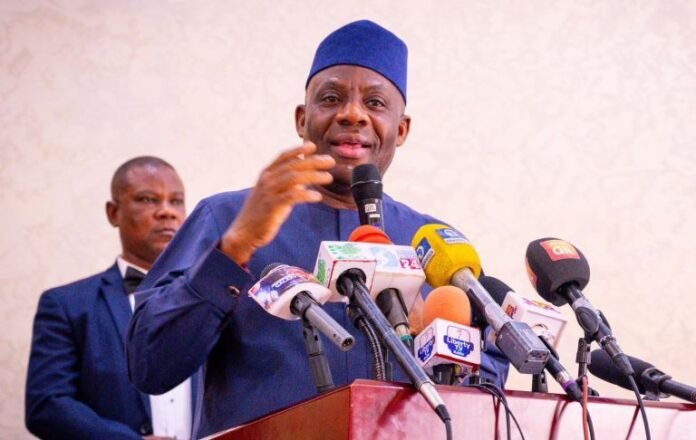The Federal Government has officially scrapped Nigeria’s National Language Policy (NLP), ending the use of indigenous languages as the medium of instruction in early education.
Minister of Education, Dr Tunji Alausa, announced this on Wednesday at the 2025 Language in Education International Conference organised by the British Council in Abuja.
“This is about evidence-based governance,” Alausa declared. “English now stands as the medium of instruction from pre-primary, primary, junior secondary, senior secondary and tertiary education levels.”
The now-abandoned National Language Policy was ratified in 2022 to promote Nigeria’s cultural heritage by mandating the use of local languages in early childhood and primary school teaching.
Why The Policy Was Dropped
Under the framework, pupils were to be taught in their mother tongue or the dominant language of their community from Early Child Care through Primary Six.
It was designed to preserve indigenous languages, boost comprehension, and help children transition smoothly into English-based learning in later years. But according to the Minister, the outcome was disappointing.
“We have seen a mass failure rate in WAEC, NECO, and JAMB in certain geo-political zones of the country, and those are the ones that adopted this mother tongue in an over-subscribed manner,” Alausa explained.
He said extensive data analysis showed that students taught primarily in indigenous languages had weaker performance in national examinations and struggled with basic English comprehension.
Evidence Over Sentiment
Dr Alausa described the decision as a product of empirical review rather than political pressure.
“Our goal is to improve learning outcomes through data-driven decisions, not sentiment,” he said. “Evidence shows that children who begin their education in English perform better throughout the system.”
The new directive means English will now serve as the language of instruction from pre-primary to tertiary education, effectively reversing one of the most ambitious linguistic education policies introduced in Nigeria in recent years.
Education experts, however, are divided. Some argue that abandoning indigenous-language instruction could deepen cultural erosion and disadvantage children from non-English-speaking homes.
Others say it’s a realistic step given Nigeria’s multilingual configuration and global economic demands.
“How do you teach a class of 50 children when half speak Hausa, some Yoruba, others Igbo or Gwari?” a teacher in Abuja asked rhetorically. “It was never practical from the start.”
Nigeria has over 500 languages, many of which are endangered. Linguists warn that the domination of English could accelerate the extinction of local dialects and dilute indigenous knowledge systems.
Still, supporters of the shift believe mastering English from the start gives Nigerian students a global edge and a better literacy foundation. “This policy ensures our children can compete internationally,” an education analyst said.
The Federal Ministry of Education is expected to release implementation guidelines soon, including teacher training updates and curriculum adjustments across public and private schools.
Rate, Like 👍, Comment 💬, Share this article, Follow us on our social media handles, and Submit your own story to get featured and earn rewards!








